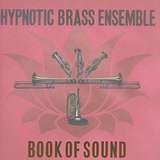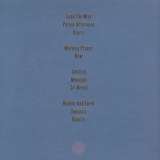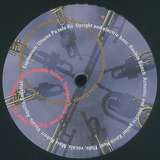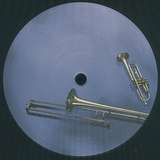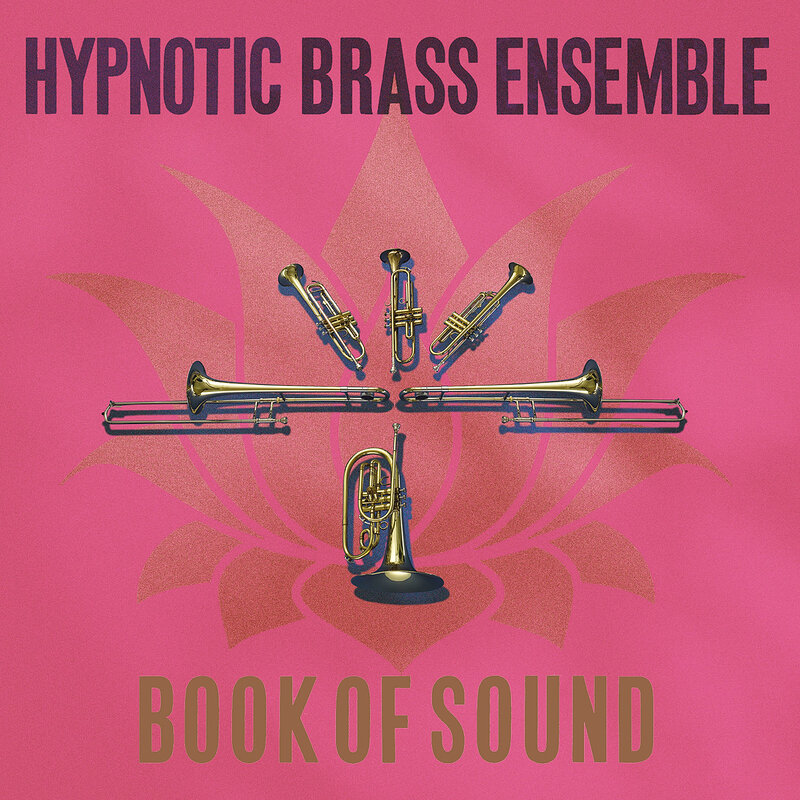Hypnotic Brass Ensemble: Book Of Sound
A deeply resonating, ‘Spiritual Jazz’ based listening experience
- 01 Lead The Way
- 02 Purple Afternoon
- 03 Kepra
- 04 Morning Prayer
- 05 Now
- 06 Solstice
- 07 Midnight
- 08 Sri Neroti
- 09 Heaven And Earth
- 10 Synapsis
- 11 Royalty
’“We started with the principle – the cosmic idea that we were taught by our father from a very young age – that the stars and planets make a sound, that deep in outer space there is audible harmony.”
With its cathedral-like, richly resonant acoustics, the new HBE album is a brilliant expression of this interplanetary principle. The album is by turns urgent and contemplative, funky and reflective, varied in its textures; but entirely of one piece. Underpinned by concepts of our earth’s place in the cosmos, held in place by meditation, swirling with notions of history, science, theology, ancestry, there is a rich conceptual brew here. But always, what talks loudest is the music. The album rings with what back in the 1950s the jazz critic Whitney Balliet called “the sound of surprise”. At a time when the phrase Spiritual Jazz threatens in some quarters to become a tired cliche, this is a record that makes you believe again in the genre’s validity.
Talking to Cid, one of the Ensemble’s two trombonists, one phrase recurs: “back to the beginning”. “We wanted to go back to the beginning, when we were kids, real young, and our father would wake us up at 5 AM to practice for two hours before breakfast.” One outcome – initially unplanned but subsequently embraced – is that unlike their two previous albums on Honest Jon’s, this is an album without a drummer. “When we started, as Wolf Pack, just brothers on the street with our horns, there wasn’t a kit in sight.” Book Of Sound retains plenty of rhythmic heft, but the absence of a drummer opens up space for a notably varied instrumental palette. Acoustic guitar, piccolo, synthesiser, alto sax – none of them typical HBE Instruments – all have their place on the album. Most striking perhaps are the vocal lines that thread through the album and give it a palpable warmth. “In Wolf Pack, we rapped and played, this time we took it a step further.”
Sessions were recorded in Brooklyn and Chicago, and brilliantly mixed at Abel Garibaldi’s studio in the Loop (“Abel was like a musician on this record”), and it’s the Hypnotic’s hometown that permeates. For Cid this is a deeply Chicago record: “it’s got the vibe of the lake, the vibe of the prairies opening up to the west”. It also has the vibe of those Sun Ra Arkestra albums recorded in Chicago in the 1950s, and – of course - the Phil Cohran albums from the 1960s.
It’s Phil Cohran (the father of all seven members of the Ensemble and their first teacher, and not just in music) who is the album’s guiding spirit. For Cid it’s a major regret that, in the months before their father’s death early in 2017, Phil was not well enough to play on the album. “He loved the whole idea, and we had the perfect place for his zither”. But Book Of Sound is a magnificent testament to their Cohran legacy. “You know, it’s tough trying to satisfy everybody with our music. It’s hard enough satisfying ourselves, let alone the jazz scene, the hip hop guys, what have you. With this album we just dropped all that as a consideration, and tuned into deeper principles.”’
Hypnotic Brass Ensemble: Book of Sound
A deeply resonating, ‘Spiritual Jazz’ based listening experience
’“We started with the principle – the cosmic idea that we were taught by our father from a very young age – that the stars and planets make a sound, that deep in outer space there is audible harmony.”
With its cathedral-like, richly resonant acoustics, the new HBE album is a brilliant expression of this interplanetary principle. The album is by turns urgent and contemplative, funky and reflective, varied in its textures; but entirely of one piece. Underpinned by concepts of our earth’s place in the cosmos, held in place by meditation, swirling with notions of history, science, theology, ancestry, there is a rich conceptual brew here. But always, what talks loudest is the music. The album rings with what back in the 1950s the jazz critic Whitney Balliet called “the sound of surprise”. At a time when the phrase Spiritual Jazz threatens in some quarters to become a tired cliche, this is a record that makes you believe again in the genre’s validity.
Talking to Cid, one of the Ensemble’s two trombonists, one phrase recurs: “back to the beginning”. “We wanted to go back to the beginning, when we were kids, real young, and our father would wake us up at 5 AM to practice for two hours before breakfast.” One outcome – initially unplanned but subsequently embraced – is that unlike their two previous albums on Honest Jon’s, this is an album without a drummer. “When we started, as Wolf Pack, just brothers on the street with our horns, there wasn’t a kit in sight.” Book Of Sound retains plenty of rhythmic heft, but the absence of a drummer opens up space for a notably varied instrumental palette. Acoustic guitar, piccolo, synthesiser, alto sax – none of them typical HBE Instruments – all have their place on the album. Most striking perhaps are the vocal lines that thread through the album and give it a palpable warmth. “In Wolf Pack, we rapped and played, this time we took it a step further.”
Sessions were recorded in Brooklyn and Chicago, and brilliantly mixed at Abel Garibaldi’s studio in the Loop (“Abel was like a musician on this record”), and it’s the Hypnotic’s hometown that permeates. For Cid this is a deeply Chicago record: “it’s got the vibe of the lake, the vibe of the prairies opening up to the west”. It also has the vibe of those Sun Ra Arkestra albums recorded in Chicago in the 1950s, and – of course - the Phil Cohran albums from the 1960s.
It’s Phil Cohran (the father of all seven members of the Ensemble and their first teacher, and not just in music) who is the album’s guiding spirit. For Cid it’s a major regret that, in the months before their father’s death early in 2017, Phil was not well enough to play on the album. “He loved the whole idea, and we had the perfect place for his zither”. But Book Of Sound is a magnificent testament to their Cohran legacy. “You know, it’s tough trying to satisfy everybody with our music. It’s hard enough satisfying ourselves, let alone the jazz scene, the hip hop guys, what have you. With this album we just dropped all that as a consideration, and tuned into deeper principles.”’
